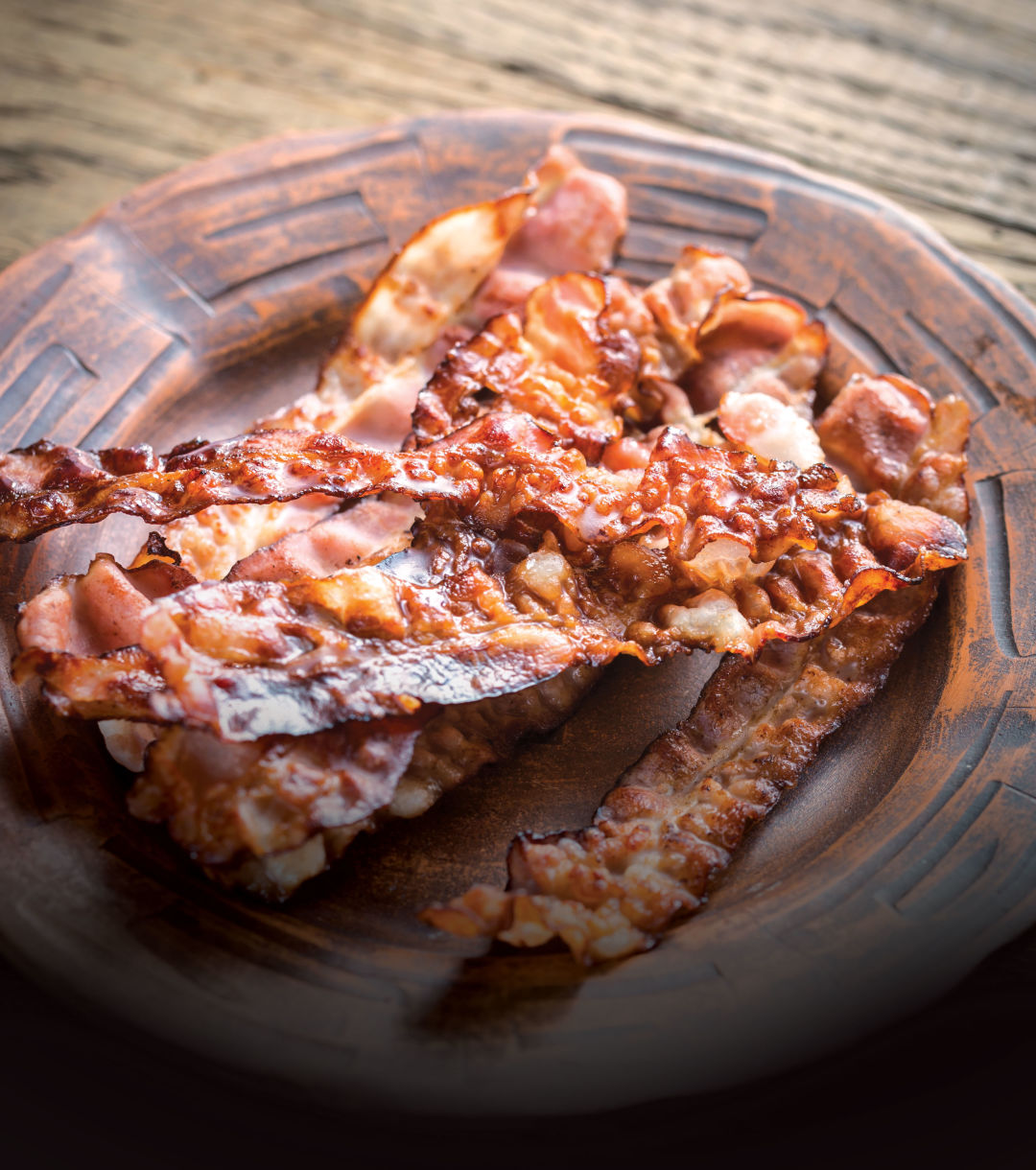An Ode to Bacon

I once visited a diner whose menu featured an important health notice. “Although it’s true that eating foods that are high in fat can lead to cardiac complications,” it said, “recent studies have proven that not eating can lead to death.” That sounded very wise to me, indeed, and the bold, affirmative kind of thing that would be embraced by courageous free-thinkers. It’s the sort of place, I thought, where the Dalai Lama would eat. And Amelia Earhart. And William Blake. People who say yes to things instead of no. People who eschew the finger-wagging denunciations of the miserablists in favor of experience. No one in that diner would ever order a salad of joyless wilted lettuce or a punitive health shake made from seaweed and hairshirt. No, in that diner, people ate honest burgers and fries and thick frosty shakes and—dare I say it?—bacon.
O, bacon. What has become of you? When I think about the smear campaigns that have been waged to keep you off the table, my arteries clog with sadness. And although no medical professional would recommend eating bacon for every single meal—and it is a profoundly unhappy enterprise to think too specifically on the slaughtering of innocent pigs—I have a few health notices of my own.
One, bacon is jam-packed with protein, which is good if you want to do something more demanding than giving fellow dinner guests a scolding inventory of all the things they should not eat. Sir Ernest Shackleton ate bacon. Lewis and Clark ate bacon. Elvis Presley would have eaten the entire pig if you left him alone in the room with it. Thus, if not for bacon, today there might be no rock ’n‘ roll—or scientists doing scientific things in Antarctica, or even America itself—and although that might be a difficult thesis to prove, we should all thank bacon that we don’t have to try.
Two, bacon is a very healthy alternative to many of the foods—correction: “food products”—that we eat every day. Roughly 17,000 new products, largely artificial, such as Cool Whip and CheezWhiz and caramel syrup, are released every year. The trouble is the human body has not evolved over thousands of years to digest things like high fructose corn syrup and ammonia (which appears, believe it or not, in most store-bought caramel syrup). But bacon? Humans have been frying up bacon ever since Homo habilis laid eyes on wild boars gamboling deliciously on the savannah. Our stomachs know what to do with it because—it’s food.
But there is also the matter of pleasure. As a person who has lived through far too many ramen-only periods, I can attest that taste is enormously important to happiness. Bacon needs no introduction in the joy department—it is known all over the planet as a synonym for gustatory bliss—but it is helpful to know that it also contains an unusually high number of umami ingredients, one of the five basic tastes, which in ultrahigh bacony quantities is so tasty that it can produce a neurochemical addiction. Variety is also immensely important, and bacon is so versatile that it can be used in virtually any dish. The modern world now offers such delectable fare as bacon doughnuts, bacon ice cream, bacon mints, sea-salt bacon chocolate, baconnaise, the Bacon Explosion, which is layers of bacon encasing an enormous brick of sausage and more bacon bits and slathered in BBQ sauce, and—for anyone stumped about what to get that special someone for Valentine’s Day—bacon lingerie.
And for those of us who, like me, still can’t shake the image of an adorable snorty pig being led to its execution, take heart: The technology to produce lab-grown meat, or “cultured meat,” is already here, and in the last two years its cost has dropped from about $250,000 per burger to $80 per kilo. And that’s good news for us and for Wilbur.



